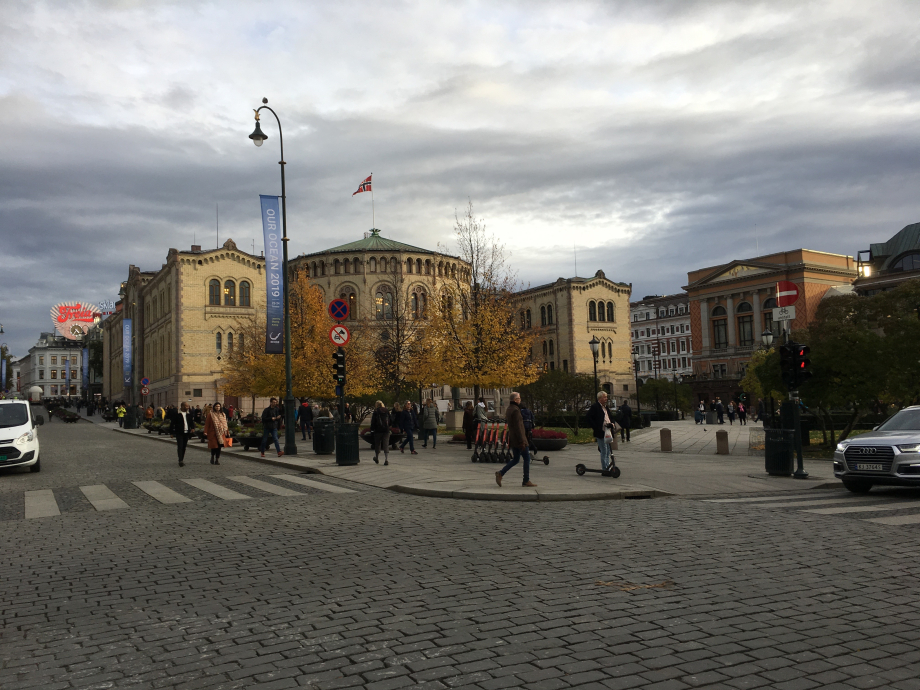Our foreign partners: Teknologirådet
The Rathenau Instituut has been unique in the Netherlands for 35 years. Worldwide there are at least 22 other institutes that advise parliament and citizens on the possible societal consequences of technological developments. In the European Parliamentary Technology Assessment network (EPTA) they cooperate and try to learn from each other. Now that the Netherlands is EPTA chair for a year, we want to get to know some of these institutes better through a series of articles. In this first episode: Tore Tennøe of the Technology Council of Norway. 'My slogan is: don't be boring!'

In short:
- Tore Tennøe has been the director of the Technology Council of Norway since 2001.
- Teknologirådet wants to advise as specifically as possible: who does what, who takes the lead and what should the consequences be?
- Teknologirådet and the Rathenau Instituut are working together on a project about smart homes.
Mr Tennøe, what issues in science and technology are you the most concerned about in 2021?
In the past year we have been very involved in corona-related issues. We have been working on tracing apps, vaccine passports, and all sorts of important value questions related to privacy, fairness and data protection concerning corona-measures. At the beginning of every year we present a report on important technological trends to Parliament, and this year it is all about moving beyond corona to a new normal. We see that the home office is here to stay and that this has implications for the way we organize our transportation, infrastructure, and economy. Also, we see that Big Tech is getting even bigger as automation is accelerating and sectors like healthcare and education are taking an extraordinary digital leap. We also focus on the prospect of a green recovery.
How do you contribute to such issues and make yourself heard?
Two things are essential for us: the quality of our work, and the timing. There is high trust in our organization and we follow policy makers closely, as they invite us to contribute to the agenda. At the same time, we are doing action research in which we report not only to the government, but also to the broader public via the media. For example, we checked how public sector websites facilitate commercial tracking from Google and Facebook, and made headlines about this in Norway’s largest newspaper.
Our countries are quite comparable in our attitudes towards government, and adoption of technology.
What can we learn from the Norwegians?
We are humble in Norway and actually follow the Rathenau Instituut’s work closely for inspiration. However, what I think we are good at is formulating actionable advice. There is a lot of general advice out there, that can apply to just about every study on technology. We like to stay away from this and be specific: who needs to do what, who should be in the lead, what will the impact be? Our role is to think out loud and my slogan is “don’t be boring!” We are not case handlers; we have the privilege of independently coming up with new ideas. In that sense we present a gift that the receiver didn’t know they wanted. It is our duty to not only create this gift, but also wrap it, present it, and explain its relevance and urgency to a broad community. Therefore, we may be subtle and academic in our work, but can also afford to be bold, original and outspoken in its presentation.
Now we are curious, how do you learn from the Rathenau Instituut?
We learn a lot in fact. Actually, when we were established, we looked at the Dutch and the Danish. The Danish Board of Technology was doing inspiring things involving citizens in research and public debate. The Rathenau Instituut does this too, and has a real edge in technology assessment. You continue to carry out sophisticated analyses and do great conceptual work. Our countries are quite comparable, I believe, in our attitudes towards government, and adoption of technology. Therefore, it is very relevant for us to keep reading up on Dutch insights on science and technology and to work together, where possible.